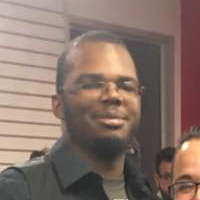Hard Lessons: Attending For-Profit Schools For Game Development
This blog post is dedicated to passing on a few lessons and habits I learned while attending the Art Institute of California - North Hollywood. Hopefully this will aid other fellow students undergoing education at a for-profit college.

Hard Lessons: Attending For-Profit Schools For Game Development
Like thousands of others, in order to get my foot in the door as a game developer I decided to attend a for-profit college. As I sit now, waiting for my diploma to arrive by mail, I realize that there are some lessons and habits I picked up that I wish I had known going in. So whether it be a new, current, or recent grad student, here are a couple hard lessons anyone attending or wishing to enroll in a for-profit school should know, especially if you want to work in games.
Those Hard Lessons
Anecdote: Do It Yourself
“DIY” or “do-it-yourself,” is going to be your best friend, your motto, and your holy grail. Day one of orientation, one of the pivotal instructors from the Game Art & Design major, Johnnie Estill, put it bluntly; there are no handouts. This school will not hand you a job(usually); if you are not committed to bettering yourself at nearly every turn, you will not be working in the game industry.
Takeaway: Games are fun but making them is a first and foremost a job. If you are going to do it, come prepared to work, hard. Your success is your responsibility.
Anecdote: The Infamous Triangle
During my third quarter at the Art Institute, I was introduced to the infamous triangle. Thanks to my then instructor and now good friend, Colin Koestler, this has been engraved into my brain. At the start of class, he drew a triangle and at one corner wrote “play games,” then at the subsequent corners “make games,” and “have a life.” He looked at us and said “Choose two.”
Takeaway: Making games isn’t easy and slacking off won’t be an option if you want to be successful. You absolutely have to put the time in. If you want to be a socialite and play games, that’s okay, but if you want to make games, your priorities will have to be adjusted.
Anecdote: You are not a gamer anymore.
You are not a gamer anymore. That sounded odd to me too when I first heard it. Johnnie had us ponder what connotations are associated with the word “gamer,” and honestly it’s not very savory. Gamers are often seen as unhygienic, young, entitled, snobby, insensitive, rude, highly misinformed couch potato critics. These stereotypes exist for a reason and as a professional, that’s the last thing you want someone to see you as. From that point on we were game developers who enjoy playing games.
Takeaway: Labels are dangerous, so be careful of who and what you associate yourself with. If you want to be taken serious, be professional and present yourself as such with correct labeling.
Anecdote: Communication & Failure
As a writer, I fancy myself pretty decent when it comes to communicating effectively. However, I learned nothing prepares you for communicating quite like being the middle man between artists and programmers; they might as well speak two completely different languages. As team lead during one of Colin’s classes, the core of my job was to ensure the whole team worked as a well-oiled machine. Despite finishing the project, overall it was considered a failure and everyone’s individual grades reflected it.
Takeaway: Communication is key in any project. Things like naming conventions, workflow, and deadlines need to be communicated and followed up on throughout the entire project. Setbacks can kill momentum and productivity. This applies to all classes and individual work as well.
Takeaway: Even if you are good at what you do, if your team fails, so do you. Not everyone becomes a Ken Levine or Todd Howard; learning to work on a team and to do your part is crucial.
Takeaway: You’re a student in school learning a tedious and meticulous craft. There will be failures; learn from them and move on. Seriously, just take note of what you did wrong and don’t do it next time. Simple.
Anecdote: K.I.S.S
Keep It Simple Silly (or Stupid, whatever you prefer). Most often one will enter game development with high hopes of creating the next best thing, but nothing kills enthusiasm, excitement, and passion as bad as taking on an over-ambitious project and ultimately failing. I originally enrolled to learn skills necessary to make better mods which, to me, meant trying to learn everything and becoming an ultimate jack of all trades. After failures, bumps, and bruises I refocused myself and specialized in what I liked the most, narratives.
Takeaway: Being a jack of all trades is not impossible, but it comes with time and experience. While you’re in school, keep your goals obtainable and focus on skills you’re naturally good at or have the passion to put the extra time into improving.
Side-Note: Some people can in fact do it all, if that’s you then by all means learn everything. Remember you’re out there to be the best, just know your limits.
Okay, just two more lessons, I swear.
Anecdote: Don’t Be THAT Guy/Gal
Every class inevitably has a class clown, “cool” guy, or that guy who makes a racial joke during a Photoshop class that sends the instructor off the rails so bad that it results in a ten-minute rant on ethics. Yeah, don’t be that guy. The golden rule, first impressions, and “Rule No. 1 – don’t be a jerk” all apply here.
Takeaway: There are three things to do in school: learn, network, and learn some more. Instructors are your gateway into the industry and students are future contacts; leaving a bad impression thins the chances of a career in games.
Anecdote: The Most Important Rule - Passion
Between three of my most influential instructors in Colin, Johnnie, and Johnathan Archambault, the first couple of quarters at the Art Institutes was like its own boot camp. Collectively, classes were drilled with videos like “So You Want to Work in the Video Game Industry” and exposed to articles like “7 Reasons You Don't Want To Work in the Video Game Industry.” None of these mediums made the idea of working in games remotely appealing. I watched, quarter after quarter, various students drop out and choose another profession. So why stay?
Takeaway: Passion. This probably is the most important thing to have going in and coming from for-profit schools. You need to want to be there, not for the degree but for the profession and all that it encompasses. Game development will consume parts of your life and to survive you will need to want to be there. Do not take your chosen career path lightly or you will fail.
Okay, that’s it.
Well, sort of. There are plenty of things worth mentioning, but these rank some of the top lessons to be learned. For-profit schools have a horrible reputation and for good reason. Overall they are somewhat terrible but they are still viable options to learn what you need to learn to be a success.
My Opinion: Do thorough research before enrolling. Look at drop-out rates and success rates. See if you can meet instructors and other admins. You are investing in your future; wherever you chose to go, simply come prepared to work and look for takeaways in everything that you do.
yes
Read more about:
BlogsAbout the Author(s)
You May Also Like








.jpeg?width=700&auto=webp&quality=80&disable=upscale)








